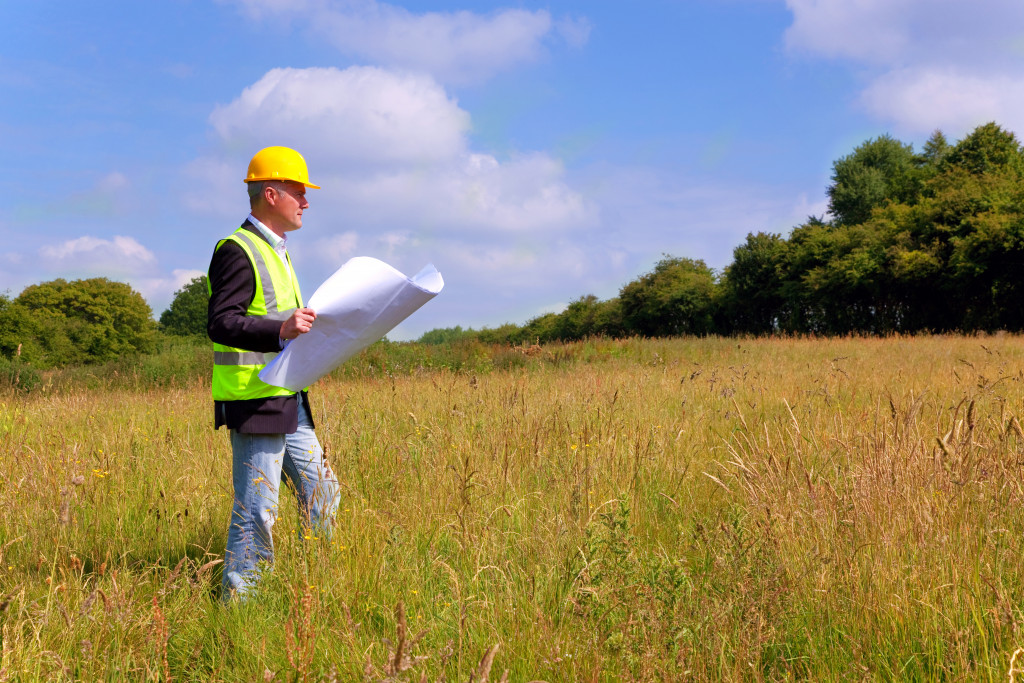Living in the countryside has a lot of benefits that city life just can’t offer. For one, there’s peace and quiet. You don’t get that in the city. Sure, you have all the hustle and bustle, but it’s not the same as sitting on your porch watching the sun set over the fields. Cityscapes can be impressive, but nothing compares to the beauty of nature. In the countryside, you can wake up to stunning views of rolling hills and green fields every day. Another great thing about living in the country is the sense of community. In a city, you can go days without seeing your neighbors. But in the countryside, everyone knows and looks out for one another. There’s a real sense of camaraderie among folks who live in rural areas.
So, if you’re thinking of building your home in a rural area, there are a few things you should keep in mind:
Local Construction Laws
You need to be familiar with the local construction laws. Each municipality has its own set of rules and regulations regarding building permits and zoning. For instance, you must ensure that the land you purchase is zoned for residential use. You don’t want to buy a piece of property only to find out later that you can’t build on it. Do your homework before you start the process, so there are no surprises down the road.
Research the Area
In the city, you can count on the roads being in good condition, and the trash is picked up on time. But in the countryside, things are a bit different. The roads may not be as well-maintained, and the local services may be more limited. That’s why it’s essential to do your research before you choose a rural area to build your home in. You must figure out alternative routes to your property, find out what local services are available, and how far away the nearest town is. Knowing these in advance might benefit you even while your home is still under construction.
However, for example, what you may need might not be available in the area, such as high-speed internet. In this case, you will have to get creative with bringing these services to your home. This might include installing a satellite dish that can provide you with high-speed internet or using a mobile hotspot to get online. The key is to be prepared for anything and to have a backup plan for when things don’t go as expected.

Get an Architect
You’d want your home to suit your needs and fit your preferred style. When you’re surrounded by nature in the countryside, you’ll want your home to reflect that, too. You may want a home that blends in with its surroundings or one that stands out as a luxurious rural oasis. Whatever your vision, hiring a reputable architect to design your home will ensure that your dream home becomes a reality. This ensures that you’re both happy and comfortable in your future home.
Your architect can also help you navigate the design and construction process. They can also recommend local contractors familiar with the area and the building laws that apply to it. It’s essential to communicate well with your architect so they know exactly what you want and need from your home.
Create a Sustainable Home
The countryside often has fresher air and cleaner water. But that doesn’t mean you can take the environment for granted. You still need to be mindful of your impact on the land. Consider using sustainable materials and green practices when building your home in a rural area. This will help reduce your carbon footprint and leave less impact on the environment.
There are many popular sustainable construction materials available in the market. These include bamboo, cork, recycled glass, and even rammed earth. These can be used to create a beautiful and sustainable home that will stand the test of time. Moreover, you can also install solar panels to generate your own energy or collect rainwater for irrigation. You can also use energy-efficient windows and appliances to reduce your environmental impact.
Building your home in a rural area has its challenges, but it’s also an enriching experience. You get to enjoy the peace and quiet of the countryside while still being close to nature. It provides you with your own space to relax and be one with nature. Knowing what to expect and how you can better prepare will send you on your way toward building your perfect rural home.

